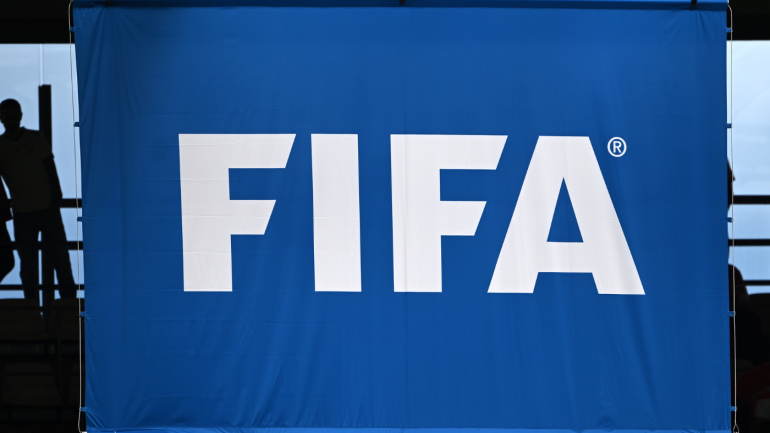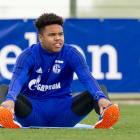
Europe's leading leagues and players union have announced they are taking legal action against FIFA, alleging that the governing body is abusing its dominant position in the sport's international match calendar. The European Leagues -- which include the Premier League, Serie A and the Bundesliga -- and FIFPRO Europe said on Tuesday that they will formally complain to the European Commission following warnings made over recent months, partly in response to FIFA's expanded Club World Cup and men's World Cup.
"The international match calendar is now beyond saturation and has become unsustainable for national leagues and a risk for the health of players," European Leagues and FIFPRO Europe said. "FIFA's decisions over the last years have repeatedly favored its own competitions and commercial interests, neglected its responsibilities as a governing body, and harmed the economic interests of national leagues and the welfare of players.
"Legal action is now the only responsible step for European leagues and player unions to protect football, its ecosystem and its workforce from FIFA's unilateral decisions." In response, FIFA said its calendar is "the only instrument ensuring that international football can continue to survive, co-exist, and prosper alongside domestic and continental club football". It also alleged that European leagues "are acting with commercial self-interest, hypocrisy, and without consideration to everyone else in the world."
What are the leagues and players concerned about?
The turf wars between the club and international game and between FIFA and UEFA have been fought long and hard in recent years, but the recent expansion of the World Cup from 32 to 48 games and in particular the growth of the Club World Cup has caused consternation among club sides. The latter competition will, starting next summer, be turned into a quadrennial summer tournament on the scale of a World Cup or European Championships, 32 clubs from across the globe decamping to the USA for a tournament that was previously an annual clash between the continental champions of each federation.
For its critics, this new format is little more than FIFA attempting to muscle in on the big club matchups that has driven so much interest and revenue to UEFA through the Champions League. FIFA president Gianni Infantino has said the competition, which will run from June 15 to July 13, will be "a major milestone in providing clubs from all confederations with a fitting stage on which to shine at the highest level of the game."
The Club World Cup appears to be serving as the straw that breaks the camel's back for those concerned about the ever expanding fixture list. Manchester City's Pep Guardiola is among those to have come out "against the lack of time to recover year by year." If his side were to reach next season's Champions League final they would have been in competitive action from Aug. 18, 2024, to May 31, 2025. Just over a fortnight later they would kick off their Club World Cup group stage fixtures. Make the final and there would be around a month until the new Premier League season begins, one that would have to be completed in brisk fashion with the World Cup due to kick off on June 11, 2026.
Drill down to the individual level and the strain on individual bodies becomes all the more notable. Julian Alvarez began his preseason for the 2023-24 season on July 17, by Aug. 6 he was playing his first (semi-competitive) match of the campaign in the Community Shield. It was 344 days later on July 25, 2024, that his season ended at the Copa America with him clutching a winners' medal. Alvarez's season encompassed 54 games with Manchester City, 14 with Argentina, 4408 minutes of football, just over three days' in total.
Eight days after 2023-24 ended, the 2024-25 campaign could begin for him with Argentina's opening match of the Olympic Games.
Already the Club World Cup is having an impact on other tournaments. The 2025 Africa Cup of Nations in Morocco had been due to take place in the summer but has been pushed back by six months to make room for a competition where Africa will be represented by four clubs -- Al Ahly, Wydad Casablanca, Esperance de Tunis and Mamelodi Sundowns -- in addition to global stars that could include Mohamed Salah and Kalidou Koulibaly.
Maheta Molango, chief executive of England's PFA players union, said: "Legal action is the unfortunate but inevitable consequence of major stakeholders within the game -- the leagues and the players -- being ignored. What unites us is the impact that decisions about the fixture calendar, made by international governing bodies, are having. In England, we've already seen major changes to the structure of the FA Cup [where replays have been scrapped] which have essentially been forced by the expansion of international competitions.
"Those changes affect all our members and their careers. It's the knock-on impact we've been warning about for a long time. Even since initial legal action began last month, led by the PFA with the French and Italian player unions, next summer's African Cup of Nations has had to be moved. That is an unavoidable result of FIFA scheduling its expanded Club World Cup for next June and July.
"AFCON will instead be played in the middle of the European season. That will directly and unexpectedly impact national leagues, clubs and -- most importantly from our perspective -- players. These are big, potentially career-altering decisions being made without proper consultation or negotiation.
"It's just not tenable to continue to argue that this approach to the fixture calendar is working. As always, it's the players who are expected to bend. As we have seen, eventually they will break. It has to stop."
What has FIFA said in response?
FIFA turned both barrels on European clubs in its response to the legal action, pointing to the money-spinning preseason tours that they are involved in. An ongoing critique of the biggest sides is that whenever they are presented with a gap in the fixture list they will look to fill it with revenue-raising games abroad, as was apparent both in the days after the 2023-24 season ended and during the mid-season break for the 2022 World Cup.
"The current calendar was unanimously approved by the FIFA Council," said a FIFA spokesperson, "which is composed of representatives from all continents, including Europe, following a comprehensive and inclusive consultation, which included FIFPRO and league bodies. FIFA's calendar is the only instrument ensuring that international football can continue to survive, co-exist, and prosper alongside domestic and continental club football.
"Some leagues in Europe -- themselves competition organizers and regulators -- are acting with commercial self-interest, hypocrisy, and without consideration to everyone else in the world. Those leagues apparently prefer a calendar filled with friendlies and summer tours, often involving extensive global travel.
"By contrast, FIFA must protect the overall interests of world football, including the protection of players, everywhere and at all levels of the game."
Will the Club World Cup go ahead?
There is no reason to suggest so far that it might not. It is, however, worth noting that there is much work left to be done by FIFA to get the competition up and running in less than 11 months' time. Bids to broadcast the tournament were invited earlier this month following talks of a worldwide deal with Apple, which appear to have run aground. FIFA is also yet to announce the calendar or host venues for the competition, which is expected to predominantly take place on the US east coast.
Further unanswered questions revolve around a club competition that bestrides the end of their season. What will happen to players transferred out or (in particular) in during the tournament? No less significantly, player contracts run to the end of June. At the time of writing big names such as Kevin De Bruyne, Virgil van Dijk and Luka Modric would cease to be employees at their clubs midway through the tournament. This is potentially an issue that could be resolved -- as it was during the COVID-19 pandemic -- but doing so would necessitate good will from clubs and player unions. Tuesday's events indicate that that could well be in short supply.
















